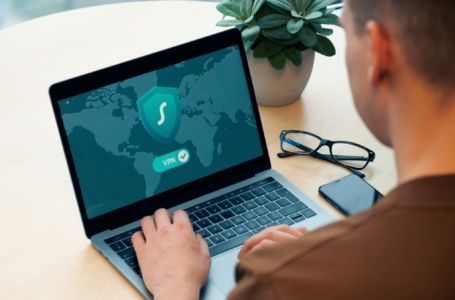How to increase privacy on the web in 5 straight steps?
Privacy on the internet is a topic that spends the night’s sleep of a huge number of Internet users. Her behavior is not easy, especially when user data is valuable material for advertisers. As ordinary people using the network, however, we are able to cover some traces that we leave behind on the Internet. How to do it?
5 ways to increase your privacy on the web today
1. Be careful what you share
Who of us does not use social media? A reasonable share of information with friends, family and friends is not bad, but it is worth remembering that some data should remain private. Not our exit must be documented, and the date of the birth of our partner or child should also remain protected.
Confidential data that we provide ourselves can be the attachment point for cyber criminals. Many people do not set strong passwords to their accounts, and instead use, for example, the names of children, partners or beloved animals – they are relatively easy to guess if the same information appears on public profiles. Moreover, excessive sharing your travel plans or everyday life can be a threat to cyberspace.
2. Connect to the network via VPN
VPN Online is a tool that creates a safe tunnel between the user and the Internet. How does this increase privacy on the web? Well, the service provider with whom we connect via VPN, does not “see” us – this is our IP address. From his perspective, we are someone completely different, namely the VPN server, through which we connect to the Internet – we use his address, and therefore its location.
This solution means that online services owners cannot use our data (including IP address), for example, to create personalized advertising tailored to our needs. VPN tunnels are also encrypted, thanks to which the data they send are secure. VPN is also a tool useful on travel-when we use public Wi-Fi networks (at airports, in hotels), we are not sure that we are properly secured by their administrators. The encrypted VPN tunnel also protects our data in such situations.
3. Do not accept all cookies
Each of us knows, after all, quite persistent windows informing about the use of the so -called. cookies by internet service owners. The need to inform users about cookies results from the provisions of the GDPR. Most cookies are necessary for the proper operation of the sites, and it is stored on Internet users – so it does not pose a threat to privacy. However, there are different types of cookies, including those that follow our actions on the web, and then support advertisers in proposing to us specific products that match our activity.
What can we do about it? Cookie handling can be completely turned off in the web browser settings, although there is a fairly radical solution negatively affecting the comfort of using the network. A better solution is to turn off only “tracking” cookies, which can also be done in the settings of some browsers.
4. Consider changing the application
Some popularly used mobile applications (for example, messengers) are famous for gathering personal details of users, although they rarely pay attention to it. Some of them openly asks them to grant them rights that are not needed to perform the tasks provided for. Fortunately, there are a lot of programs created independently (not related to large corporations) on the market and those who care about the privacy of people using them.
It is worth spending a moment and checking which applications on the phone are unnecessary to us or can be changed to more secure. For example, separate programs are not needed for many activities at all – all you need is an ordinary (but focused on privacy) web browser.
5. Disable the location in mobile devices
We use the location in smartphones on a daily basis, if only to be able to use GPS or similar technologies. However, we do not always remember to turn it off when she is unnecessary. What’s wrong with that? Well, companies willingly collect all information about users that can only get. This also applies to data on the physical location of the device.
The location enabled in the phone is able to reveal everything about us – if someone traced the location of our device on the map, he would find out where we live, work, where we take our children or how we spend their free time. So remember to turn off the location when you don’t need it. By the way, we will slow down the battery in the smartphone.
Conclusions
Privacy on the Internet is still quite a new issue. Finally, the network itself develops at a pace that is hard to keep up with. Two decades ago, no one thought that he would have to worry about tracking. The law is chasing technology and we are already observing changes regarding, for example, cookies. However, it is worth making efforts to strengthen your own privacy. It is not difficult, it takes literally a few moments, and undoubtedly brings only benefits.
